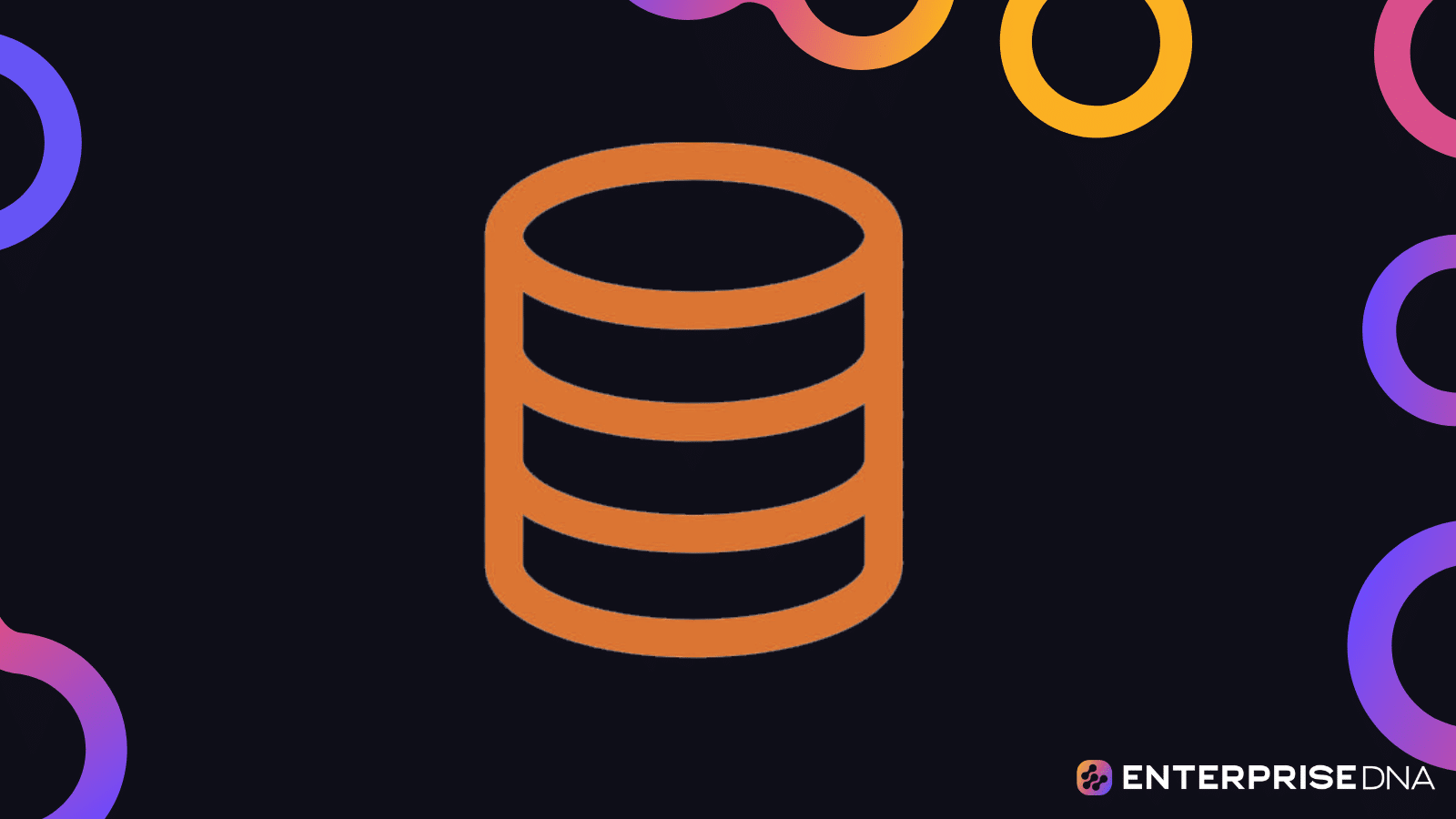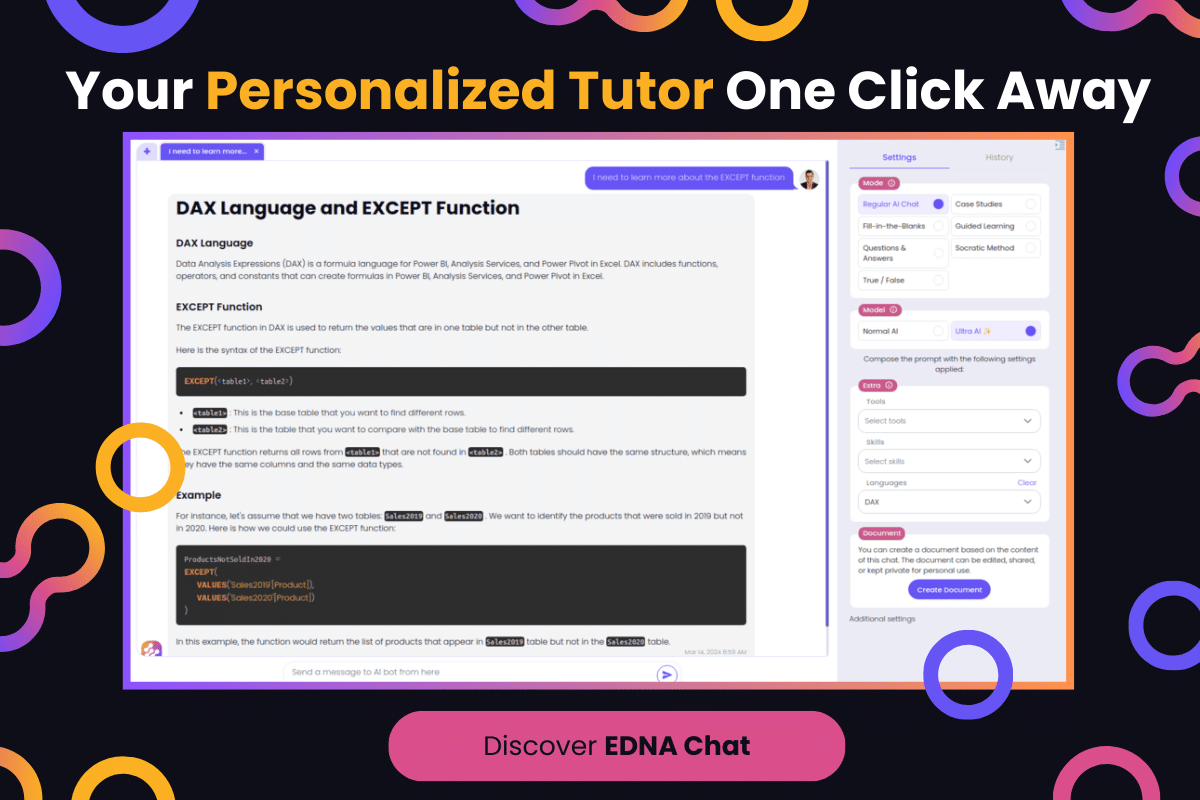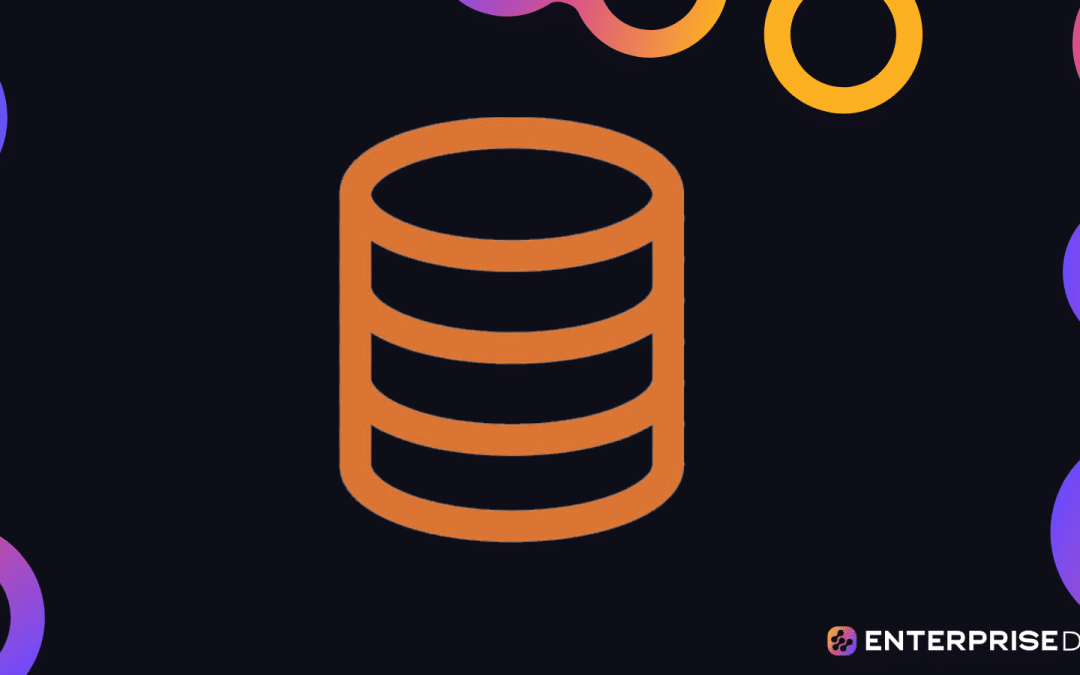If you’ve ever worked with large datasets, you’ve undoubtedly suffered the pain of writing SQL queries, but not anymore!
Introducing an AI-powered SQL code generator that promises to simplify database querying.
An SQL generator is a tool or software that automates the creation of SQL (Structured Query Language) queries. Instead of manually writing complex SQL code, users can input their requirements, and the SQL generator will construct the appropriate SQL query.
This article will discuss the benefits of using AI-powered SQL generation and how it can help you.
So, whether you’re a seasoned SQL expert or just starting out, these tools offer incredible benefits.
Ready to revolutionize your data querying experience?
Let’s get started!
Overview of SQL Code Generators

SQL code generators have revolutionized the way developers interact with databases.
They simplify writing complex SQL queries by translating natural language or simpler programming constructs into efficient SQL queries.
With the advent of AI-driven generators, this process has become even more streamlined and intuitive.
Let’s delve into the benefits of using AI-powered tools for SQL generation.
Advantages of Using AI for SQL Code Generation
Natural Language Processing: NLP-powered code generators can interpret user queries in plain English and convert them into SQL, making database interactions more accessible.
Complex Query Construction: They can effortlessly handle complex query requirements, weaving together multiple SQL clauses.
Speed and Efficiency: AI-driven generators significantly reduce the time needed to formulate database queries.
Error Minimization: These tools help reduce syntax errors, ensuring more accurate data retrieval and manipulation.
Adaptive Learning: Models powered by artificial intelligence can learn from interactions, improving their query-generation capabilities over time.
Diverse Database Compatibility: They are designed to work with various SQL databases, including MySQL, PostgreSQL, and Microsoft SQL Server.
Moving on, let’s explore how to use a SQL generator.
How to Use An AI-Powered SQL Generator

We’ll use the EnterpriseDNA code Generator for the following examples, showcasing its ability to translate different types of user inputs into SQL queries.
Example 1: Basic Data Retrieval
User Input: “Get the names and email addresses of all users.”
Generated SQL Query:
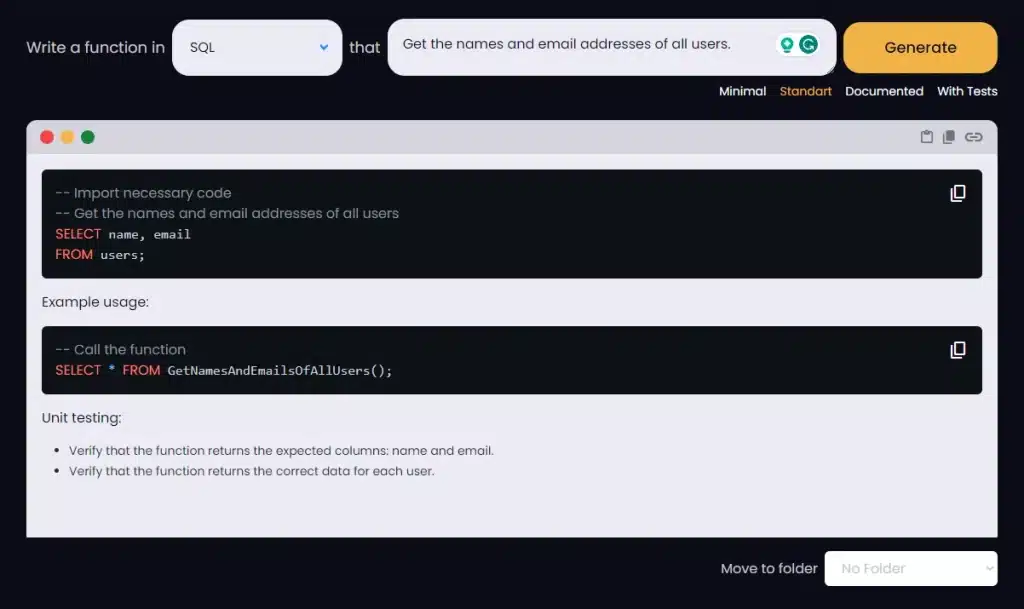
This example highlights the generator’s precision in executing basic data retrieval. It effortlessly converts a straightforward request into an efficient SQL SELECT query.
Let’s move on to conditional queries.
Example 2: Conditional Query
User Input: “Show orders over $100 made in the last 30 days.”
Generated SQL Query:
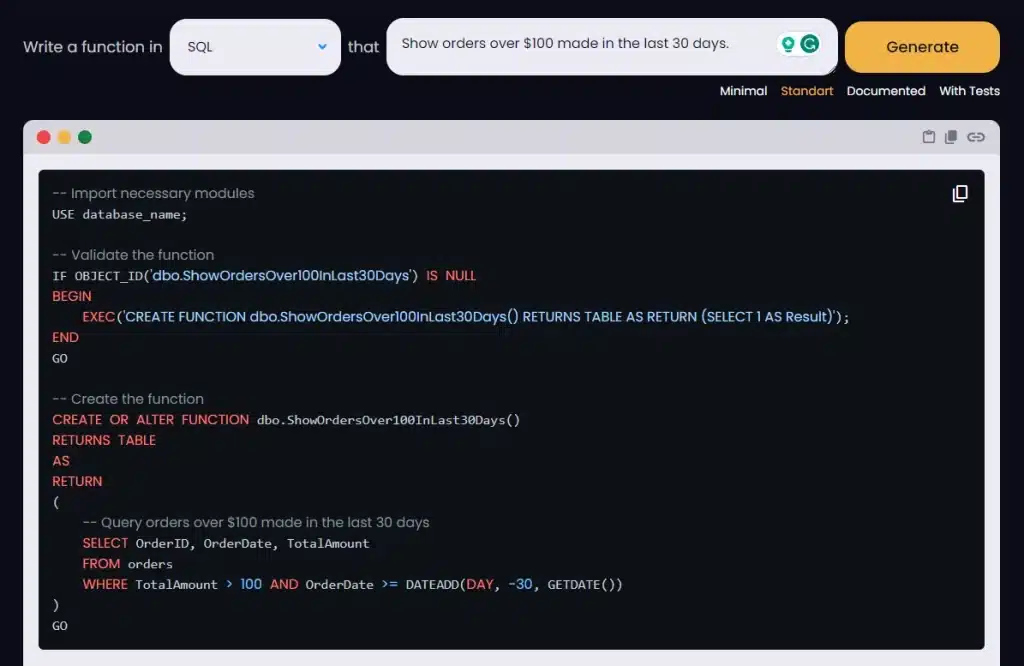
Observe how the generator easily incorporates conditional logic and temporal constraints. It skillfully formulates a query to filter orders based on value and recentness, demonstrating its aptitude in managing dynamic data queries.
Next, let’s check out aggregation and grouping.
Example 3: Aggregation and Grouping
User Input: “Calculate total sales by product category for the current year.”
Generated SQL Query:
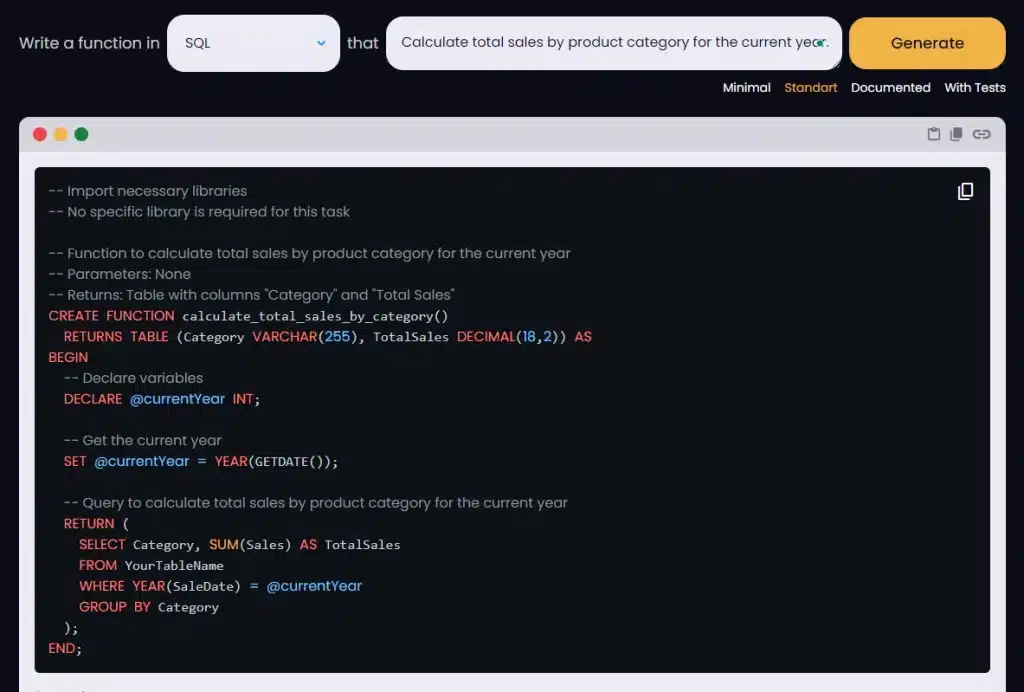
This query demonstrates the generator’s ability to easily aggregate data, processing requests for calculating total sales by grouping them into product categories within a specific timeframe.
For the next example, let’s check out joining multiple tables.
Example 4: Joining Multiple Tables
User Input: “List employees and their department names.”
Generated SQL Query:
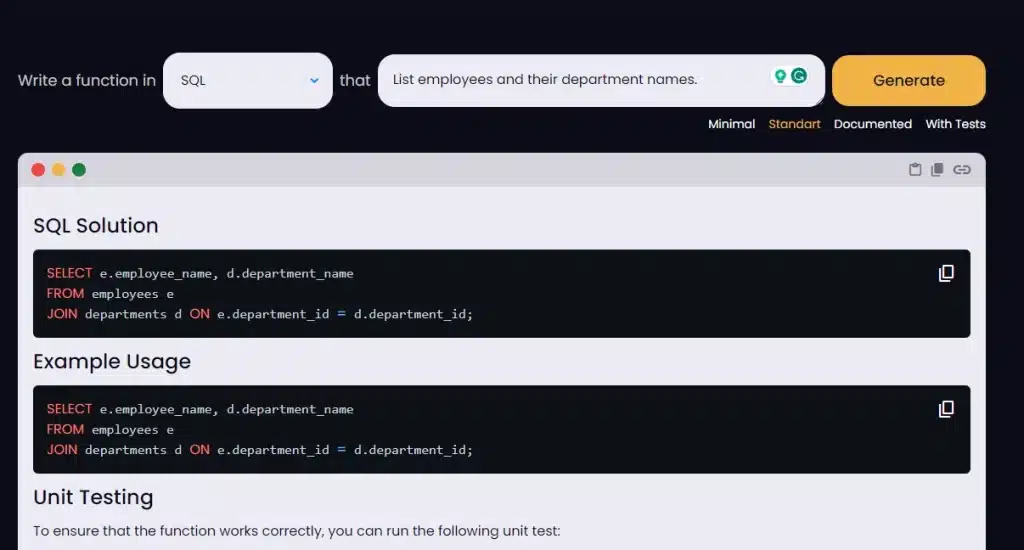
Here, the generator demonstrates its fluency in relational database operations. It constructs a query that joins employee data with department information.
Now, let’s delve into the intricacies of more advanced SQL functionalities.
Example 5: Subquery and Sorting
User Input: “Find the top 5 highest-selling products in July 2023.”
Generated SQL Query:
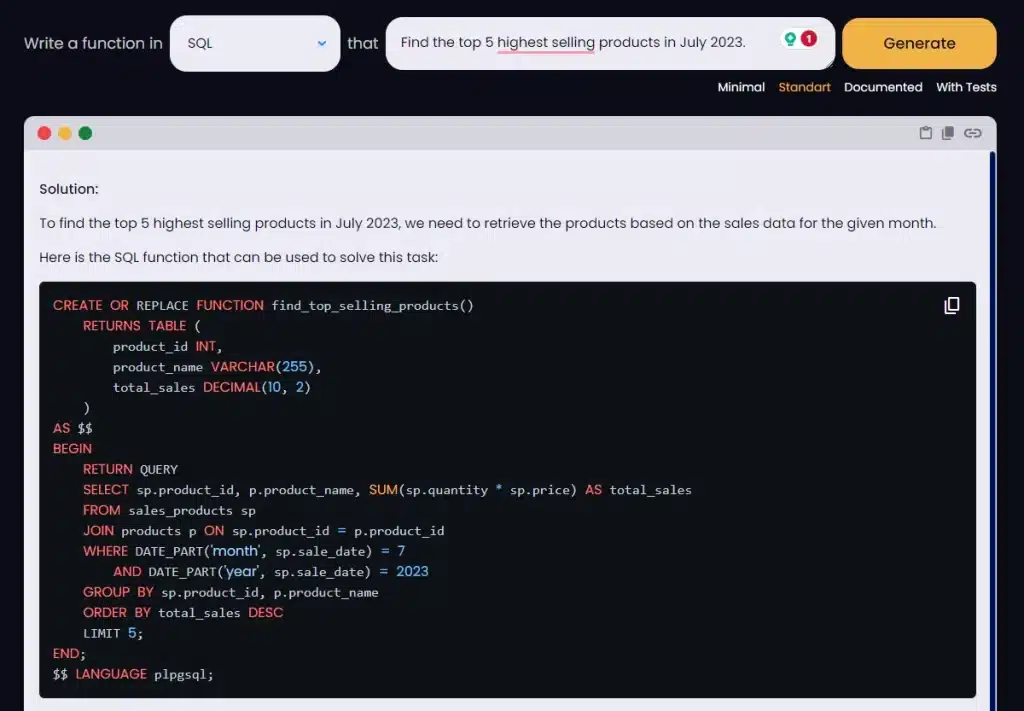
This example demonstrates the advanced capabilities of the generator.
It effectively handles complex queries that involve subqueries, sorting algorithms, and result limitations to identify the top-selling products within a specific period.
These examples highlight the AI-powered SQL Generator’s capacity to handle a diverse range of SQL query generation tasks.
Whether its a simple data retrieval task or complex, multi-faceted queries, or streamlining database interactions, Enterprise DNAs Data Mentor has you covered.
With these insights in mind, let’s now gather our final thoughts.
Final Thoughts

In today’s data-driven world, efficiently accessing, manipulating, and analyzing databases is crucial for the success of any organization.
AI-powered SQL code generators offer an innovative solution to streamline this process by automating the creation of SQL queries based on your input or natural language instructions.
This cutting-edge technology enables you to save time on routine tasks, improve code readability, reduce errors and contribute to better data management overall.
For those new to SQL or experienced developers looking to optimize their workflows, integrating an AI-powered SQL generator into your toolkit is highly recommended.
Not only does it enhance productivity, but it also ensures that you are generating accurate queries for better database performance.
Exciting new courses alert! Learn about ‘SQL for Power BI’ and ‘DAX for SQL Developers in these upcoming courses on the enterprise DNA YouTube channel:
Frequently Asked Questions
What is the Role of an AI-driven SQL Generator?
AI-driven SQL query creators employ advanced AI technology to translate user commands or questions into SQL queries.
They utilize natural language interpretation and other AI mechanisms to convert users’ intents into executable SQL commands.
What Database Systems are Compatible with AI-enabled SQL Generators?
These generators boast broad compatibility, supporting various database systems including popular ones like MySQL, and PostgreSQL, and less common ones such as Snowflake and BigQuery.
Can These Generators Handle Intricate SQL Queries?
Absolutely, AI-enabled SQL generators are proficient in constructing complex SQL queries. For queries that are particularly elaborate, they might need more detailed input or clarification from the user.
Are AI SQL Generators Easy to Navigate for Beginners?
Indeed, these tools that generate SQL are designed with simplicity in mind, making them accessible to users with varying levels of SQL expertise.
Do AI SQL Generators Facilitate Business Intelligence Operations?
Yes, tools such as Avanty streamline the extraction of insights from data sets. They eliminate the complexity of writing SQL queries, enabling users to focus on data analysis and interpretation.
How Do These Tools Process Everyday Language Into SQL Queries?
Some tools, like Text To SQL, adeptly convert everyday language into SQL queries. They can create a range of queries from simple selections to more advanced operations like joins.
What’s the Learning Curve Like for Using AI SQL Generators?
These generators are designed for a wide audience, offering intuitive interfaces that allow easy query generation without prior SQL knowledge. This makes them suitable for both novices and experienced users.
How Well Do AI SQL Generators Integrate with Other Applications?
Software like CodeSquire integrates seamlessly with various software platforms, enhancing the user experience by enabling SQL query generation within the main application interface.
What Limitations Do AI SQL Generators Have?
Despite their utility, they may need more support for certain SQL dialects, potential security issues in generated queries, and occasional imprecision with complex query scenarios.

